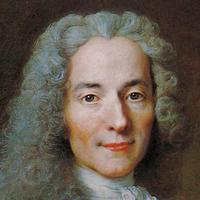Chapter 21
XXI CANDIDE AND MARTIN, REASONING, DRAW NEAR THE COAST OF FRANCE.
At length they descried the coast of France.
"Were you ever in France, Mr. Martin?" said Candide.
"Yes," said Martin, "I have been in several provinces. In some one-half of the people are fools, in others they are too cunning; in some they are weak and simple, in others they affect to be witty; in all, the principal occupation is love, the next is slander, and the third is talking nonsense." "But, Mr. Martin, have you seen Paris?" "Yes, I have. All these kinds are found there. It is a chaos—a confused multitude, where everybody seeks pleasure and scarcely any one finds it, at least as it appeared to me. I made a short stay there. On my arrival I was robbed of all I had by pickpockets at the fair of St. Germain. I myself was taken for a robber and was imprisoned for eight days, after which I served as corrector of the press to gain the money necessary for my return to Holland on foot. I[Pg 103] knew the whole scribbling rabble, the party rabble, the fanatic rabble. It is said that there are very polite people in that city, and I wish to believe it." "For my part, I have no curiosity to see France," said Candide. "You may easily imagine that after spending a month at El Dorado I can desire to behold nothing upon earth but Miss Cunegonde. I go to await her at Venice. We shall pass through France on our way to Italy. Will you bear me company?" "With all my heart," said Martin. "It is said that Venice is fit only for its own nobility, but that strangers meet with a very good reception if they have a good deal of money. I have none of it; you have, therefore I will follow you all over the world." "But do you believe," said Candide, "that the earth was originally a sea, as we find it asserted in that large book belonging to the captain?" "I do not believe a word of it," said Martin, "any more than I do of the many ravings which have been published lately." "But for what end, then, has this world been formed?" said Candide.
"To plague us to death," answered Martin. "Are you not greatly surprised," continued Candide, "at the love which these two girls of[Pg 104] the Oreillons had for those monkeys, of which I have already told you?" "Not at all," said Martin. "I do not see that that passion was strange. I have seen so many extraordinary things that I have ceased to be surprised." "Do you believe," said Candide, "that men have always massacred each other as they do to-day, that they have always been liars, cheats, traitors, ingrates, brigands, idiots, thieves, scoundrels, gluttons, drunkards, misers, envious, ambitious, bloody-minded, calumniators, debauchees, fanatics, hypocrites, and fools?" "Do you believe," said Martin, "that hawks have always eaten pigeons when they have found them?" "Yes, without doubt," said Candide. "Well, then," said Martin, "if hawks have always had the same character why should you imagine that men may have changed theirs?" "Oh!" said Candide, "there is a vast deal of difference, for free will——" And reasoning thus they arrived at Bordeaux.

